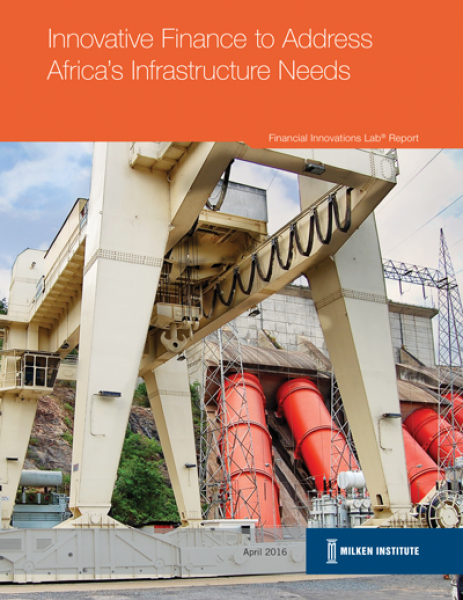
Innovative Finance to Address Africa’s Infrastructure Needs
As of 2015, African state governments had financed infrastructure development on their balance sheets alone, resulting in slower progress constrained by budgetary restrictions. In many regions across the African continent, the poor state of infrastructure was found to reduce GDP by 2 percent annually and to lower business productivity by as much as 40 percent annually. Few local governments had the mechanisms in place to issue bonds, and most local banks lacked the capacity to supply loans needed for long-term infrastructure investment.
To address this, The Milken Institute convened a Financial Innovations Lab in London in October 2015, bringing together leaders from private equity funds, commercial banks, development finance institutions, corporations, and institutional investors, with the goal of producing specific recommendations for infrastructure finance models across Africa. The Lab was one of a series of meetings convened by the Milken Institute in partnership with the US Agency for International Development (USAID), Liquidnet, and Symbion, and aimed to facilitate new types of public-private partnerships.
Lab participants found a common barrier to investment in Africa’s infrastructure: the perception of outsized risk combined with the lack of a successful track record. In response, participants suggested a broader variety of financial offerings, more sources of data about local conditions, credit and sovereign risk, as well as improved deal implementation and time to completion. Specific models discussed included project bonds, infrastructure debt funds, quasi-public infrastructure debt funds, and public-private partnership equity funds with government taking a first loss position.
Lab
October 2015
London, England

